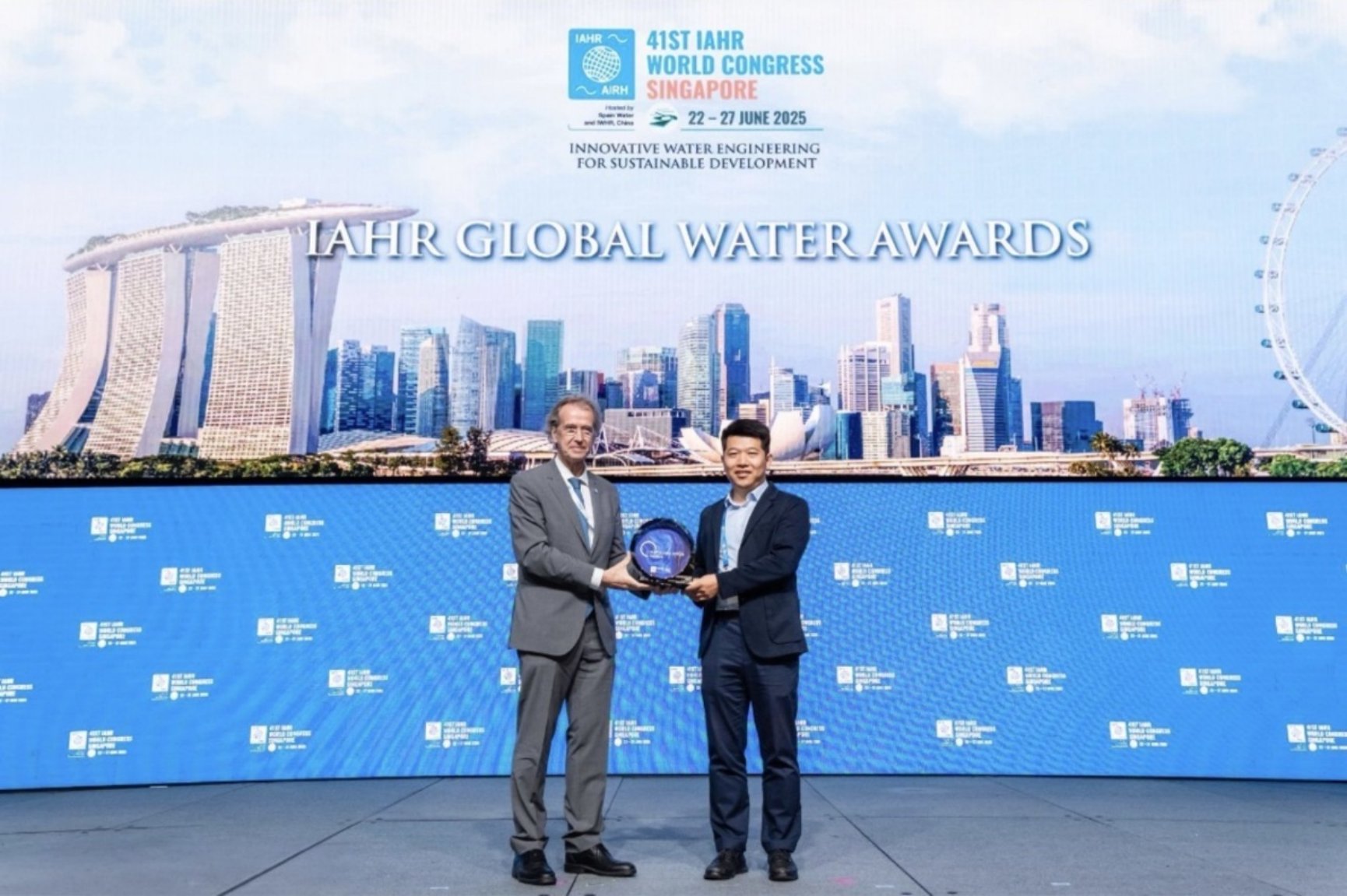
The International Association for Hydro-Environment Engineering and Research (IAHR) recently announced the winners of the 2025 Global Water Awards, and Dr. Dongfeng Li, Researcher at the College of Environmental Sciences and Engineering, Peking University, has been honored with the Young Professional Award.
The IAHR Global Water Awards are among the most prestigious honors in the field of hydro-environmental engineering, recognizing outstanding individuals who have made exceptional contributions and innovations in water science and engineering. The award ceremony, a highlight of the 41st IAHR World Congress, was held on June 23, 2025, in Singapore. Dr. Li was recognized “for his groundbreaking research on cryosphere-fed rivers, advancing understanding of climate change impacts on water and sediment fluxes, and his outstanding contributions to hydropower development, water security, and environmental protection.”

Dr. Dongfeng Li received the award from Professor Philippe Gourbesville, President of the IAHR.
Founded in 1935, IAHR is one of the world’s most influential professional organizations in hydro-environmental research and engineering, with over 5,000 individual members, 120 institutional members, and 50 young professional networks across more than 100 countries, encompassing leading universities, research institutions, and enterprises. The association operates four regional divisions (Asia-Pacific, Europe, Africa, and the Americas) and 18 technical committees.
Over the past years, Dongfeng has conducted pioneering research on the water and sediment fluxes of cryosphere-fed rivers on the Tibetan Plateau, achieving a series of breakthroughs. He has published over 20 papers in top-tier journals including Science, Science Advances, Nature Geoscience (Cover Story), Nature Reviews Earth & Environment (Cover Story), and Science Bulletin. His research has been supported by the National Natural Science Foundation of China (52479055) and the Excellent Young Scientists Fund of the National Natural Science Foundation of China.